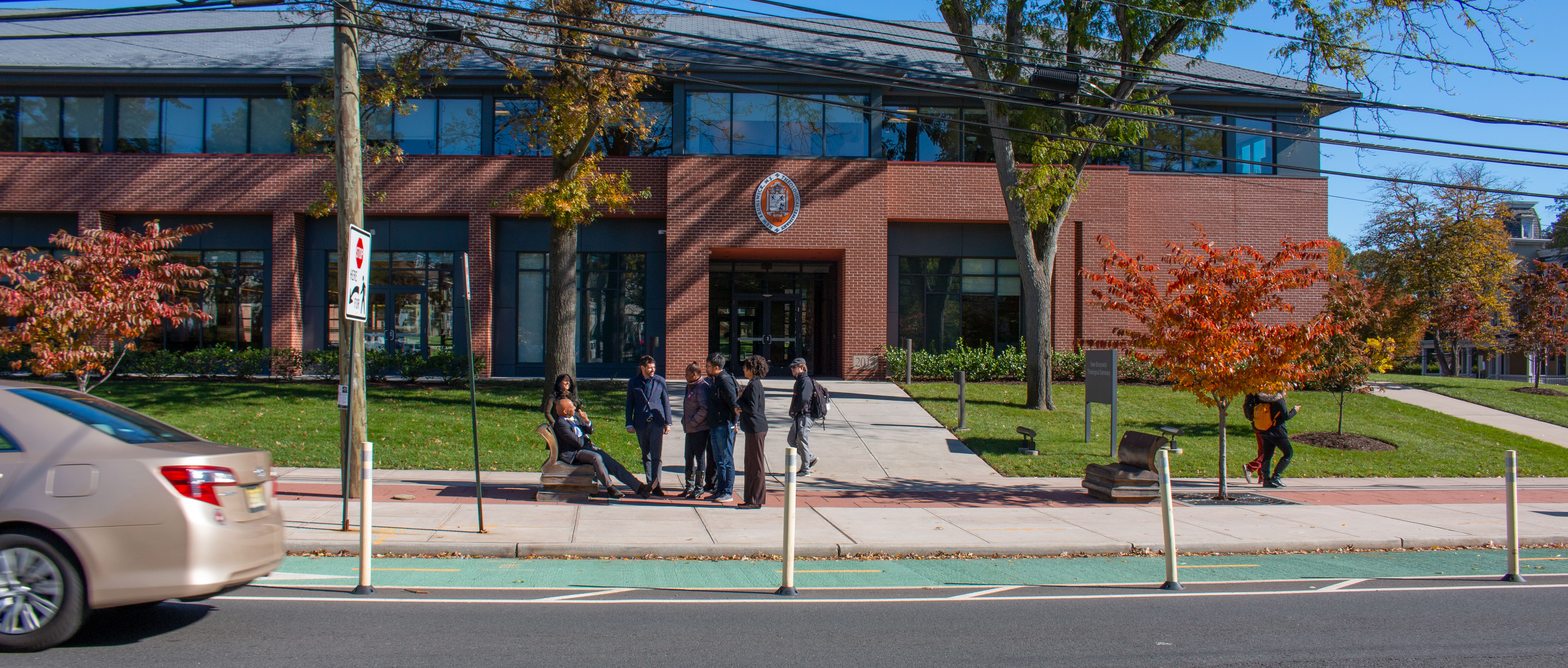President’s Blog 5 – Facts, Fiction, and Faith: Legalization of Marijuana in New Jersey
December 3, 2018

President’s Blog 5
Facts, Fiction, and Faith: Legalization of Marijuana in New Jersey
As New Jersey lawmakers recently prepared to unveil their latest proposal to legalize recreational marijuana use for people 21 and over, an ecumenical multi-faith program was held at New Brunswick Theological Seminary to discuss Fiction, Facts, and Faith related to the effort. A panel consisting of the Rev. Sammy Arroyo and the Rev. Dr. Charles Franklin Boyer of Salvation and Social Justice; Maura Collinsgru of New Jersey Citizen Action; and Dr. Janice McLean-Farrell, Ph.D., and myself, of New Brunswick Theological Seminary, discussed the topic. Our conversation was followed by workgroup discussion on: The Danger of Youth Addiction; The Questionable Implications of Big Marijuana; and The Hope of Restorative & Retributive Justice. (https://www.njtvonline.org/news/video/pot-and-pastors-why-faith-leaders-are-getting-involved-with-legalized-weed/)
My conversations during the program centered on fact that pastors and ministry leaders need correct information when confronting difficult decisions such as legal drug use. Four issues this writer would like pastors and ministers to consider are:
- The brain reward system is more complicated than people realize and must be a factor in our conversations about drug use. Specifically, scientists do not fully understand why or how people become addicted to drugs, alcohol, and cigarettes. We, as a society, know that marijuana use is an associated gate way drug to other drug use, but we do not know if the risk to negative outcomes are correlational or causal; and we have scientific evidence that the brain is dramatically injured by drug and alcohol use, particularly for people under the age of 24 who’s brains have not fully formed.
- Researchers have discovered that our desires and habits as humans are deeply connected to our internal and external reward systems. Our desires, habits, and reward systems can have both powerfully negative and powerfully positive effects on our health and well-being. Thus, as we consider whether or not to legalize recreational marijuana, we ought to accept that there is a very complex relationship between our brain, our mind, our context, and our beliefs when it comes to our behaviors. We cannot and must not pass laws solely based on monies.
- Restorative Justice is a church issue and concept. Our current legal and justice systems have their roots in the theological concept of retribution, that is, an eye for an eye. But this writer believes Jesus repudiatesretribution justice in Matthew 5:38-42, when He states, “Ye have heard that it hath been said, an eye for an eye, and a tooth for a tooth: But I say unto you, that ye resist not evil: but whosoever shall smite thee on thy right cheek, turn to him the other also.” Mohandas Gandhi was also believed to have said, “An eye for an eye leaves the whole world blind.” We believe that pastors and ministers must focus on teaching restorative justice over retributive justice. We must work and seek to provide restorative solutions rather than retributive ones.
- Additionally, churches have been a support to meetings for Alcoholics Anonymous and Narcotics Anonymous, both organizations focused on abstaining from the use of legal and illegal drugs and alcohol. As institutions organized to support the healing of wounds and traumas of those addicted to drugs and alcohol, congregations, pastors, and ministers are confronted with a different challenge if marijuana use is legalized. I believe that AA and NA must adopt the entire Serenity Prayer in order to address the issues of dependency and addiction more fully. Specifically, the portion of the prayer that states, “Living one day at a time; enjoying one moment at a time; accepting hardships as the pathway to peace; taking, as Jesus did, this sinful world as it is, not as I would have it; Trusting that He will make all things right if I surrender to His will; That I may be reasonably happy in this life and supremely happy with Him forever in the next.” I have used the complete version of the prayer with men and women in active addictions for years. We would focus on its meaning and its implications. I have also used it with men in men’s group discussing the daily struggles of leading businesses, families, and churches. The sense of agency and hope that result from the use of the entire Serenity Prayer is something for our churches to consider.
Wherever lawmakers land on this pivotal issue, we must remember our charge to guide all people to wholeness and wellbeing, and most importantly, to the beacon of hope that is Christ. If we can get them there, this will go a long way in defeating the questionable avenues that many follow in the quest for peace and fulfillment.
In Joy and In Justice!
Micah L. McCreary
President, New Brunswick Theological Seminary
